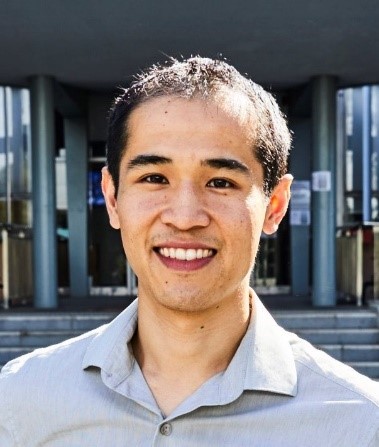Joint PS and BSB Seminar - Synthetic control of peptide and protein architectures
Synthetic chemistry and synthetic biology offer complementary tools for manipulating the 3D architecture and function of biomolecules. I will outline two different projects that exemplify our hybrid chemical biology approach, highlighting divergent applications in catalysis and cancer therapy.
Speakers
Content navigation
Description

Abstract: Synthetic chemistry and synthetic biology offer complementary tools for manipulating the 3D architecture and function of biomolecules. I will outline two different projects that exemplify our hybrid chemical biology approach, highlighting divergent applications in catalysis and cancer therapy.
The first project involves the study of encapsulins, self-assembling protein cages that act as organelles in bacteria.1 We are using engineered versions of encapsulins as nanoreactors for hosting custom catalytic reactions. Through a combination of cryo-EM, molecular dynamics and stopped flow kinetics, we are uncovering how these cages act as selectivity filters to influence the outcomes of enzymatic reactions such as carbon fixation.2
The second project involves the control of peptide conformation using cyclisation to enhance inhibition of proteins implicated in cancer. We have used mRNA display to select for cyclic peptides that target the FANCM-BTR interaction – a key protein-protein interaction that regulates the proliferation of “ALT-positive” cancers.3,4 Our highest affinity cyclic peptides show nanomolar potency for disrupting FANCM-BTR in vitro, with crystal structures revealing novel modes of interaction within the binding interface.
- Y. H. Lau et al., Nat. Commun., 2018, 9, 1311.
- L. S. R. Adamson et al., Sci. Adv., 2022, 8, abl7346.
- R. Lu et al., Nat. Commun. 2019, 10, 2252.
- Q. N. Vu et al., RSC Med. Chem. 2021, 12, 887-901.
Biography: Dr Yu Heng Lau is a Senior Lecturer and group leader in the School of Chemistry at the University of Sydney. Yu Heng completed a PhD in organic chemistry at the University of Cambridge, then moved to Harvard Medical School as a Sir Henry Wellcome Postdoctoral Fellow in bioengineering. He is recognised for developing new chemical methods for peptide cyclisation to target oncogenic protein-protein interactions. He has also established genome-scale engineering methods for the reprogramming of synthetic microorganisms, and protein engineering methods for manipulating in vivo self-assembly.
In mid-2017, Yu Heng was recruited back to Sydney as a Lecturer and DECRA fellow, where he has established a research program that spans the fields of medicinal chemistry and synthetic biology.
Currently, the two main research themes in his lab are: 1) Developing cancer therapeutic leads that target genome instability at telomeres, and 2) Engineering protein nanocages as synthetic organelles for carbon fixation.
If you would like a meeting with Yu Heng prior or after his talk, please email Spencer.Whitney@anu.edu.au.
Location
Eucalyptus Seminar Room, Level 2, RN Robertson Bldg (46)
To make up for the late start, there will be catering of snacks and drinks.
